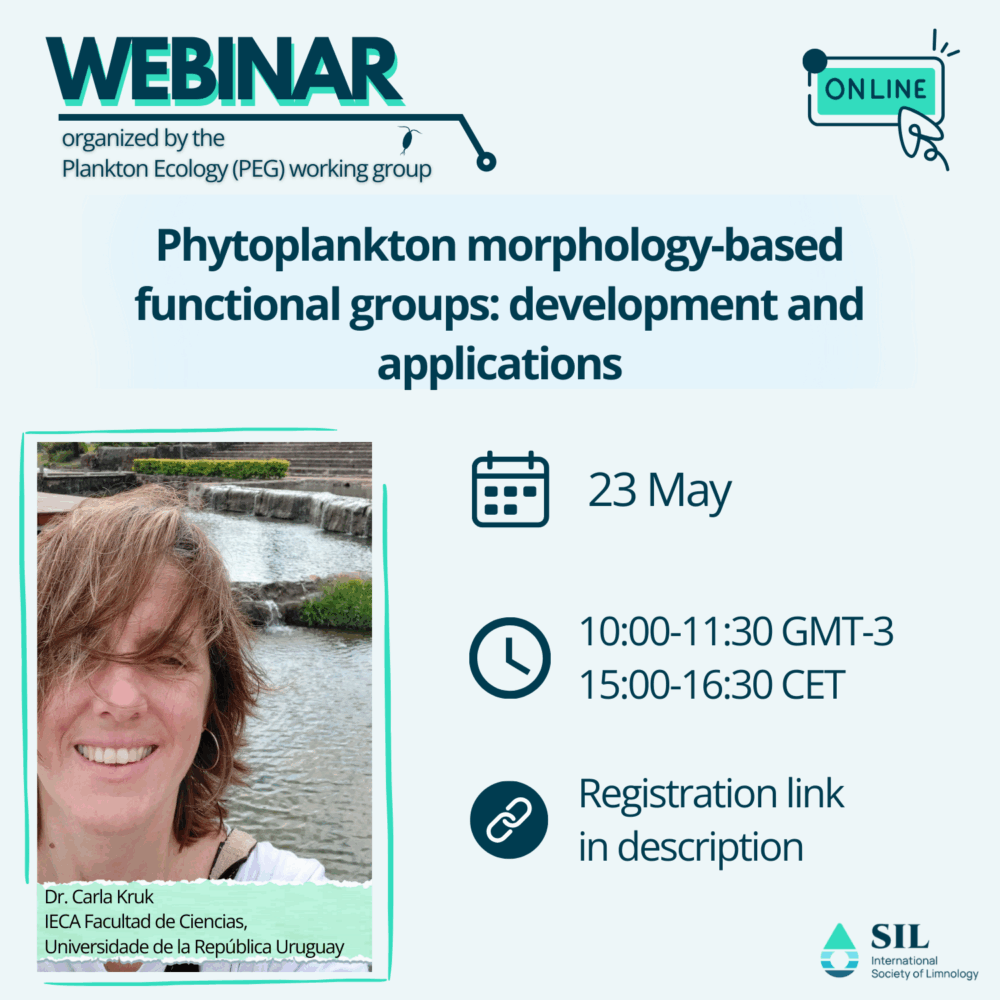Speaker: Dr. Carla Kruk, IECA Facultad de Ciencias, Universidade de la República Uruguay
Date: 23 May
Time: 10:00-11:30 GMT-3 (Uruguay), 15:00 CET
Summary: The phytosociological approach is a long-standing line of work aimed at predicting community composition of phytoplankton species that, together with trait-based tools, has improved our understanding of community assembly. In 2010, we developed a morphological classification of organisms that captures much of the functional traits and variability of phytoplankton from lakes in climates ranging from subpolar to tropical. The Morphology-based Functional Groups (MBFG) approach is simple and classifies organisms of different species into seven groups with significant functional properties, based solely on morphological traits such as individual volume and presence of mucilage. Fifteen years later, we have assessed the predictability of the MBFG, its relationship with community composition along latitudinal and environmental gradients, and formalised the main driving processes that estimate MBFG fitness. Others have applied, criticised and improved the classification. The aim for this presentation is to summarise the main results, discuss limitations, update the classification and improve the accessibility of this tool. We also seek to discuss future directions for the MBFG approach to improve our understanding of the causes and consequences of human impacts on Earth’s ecosystems.
